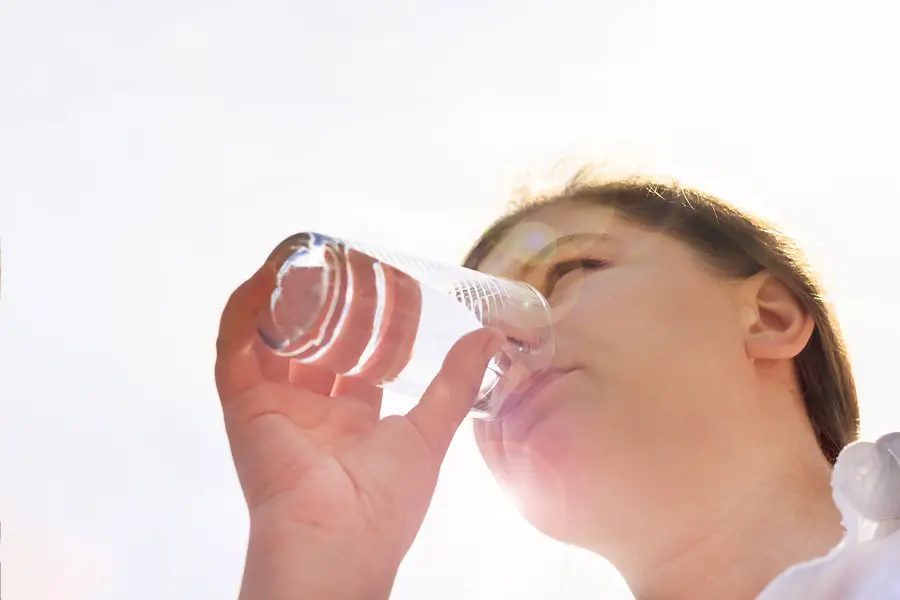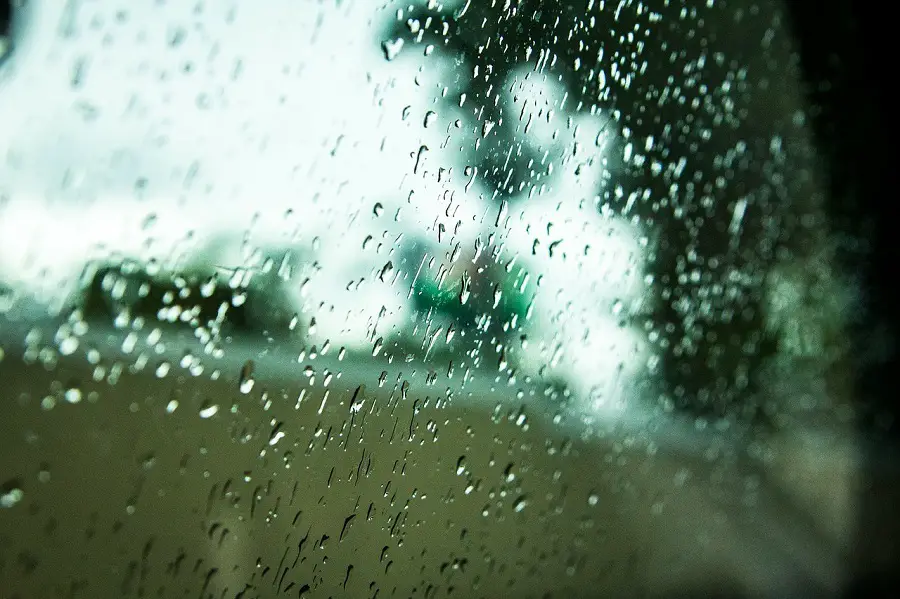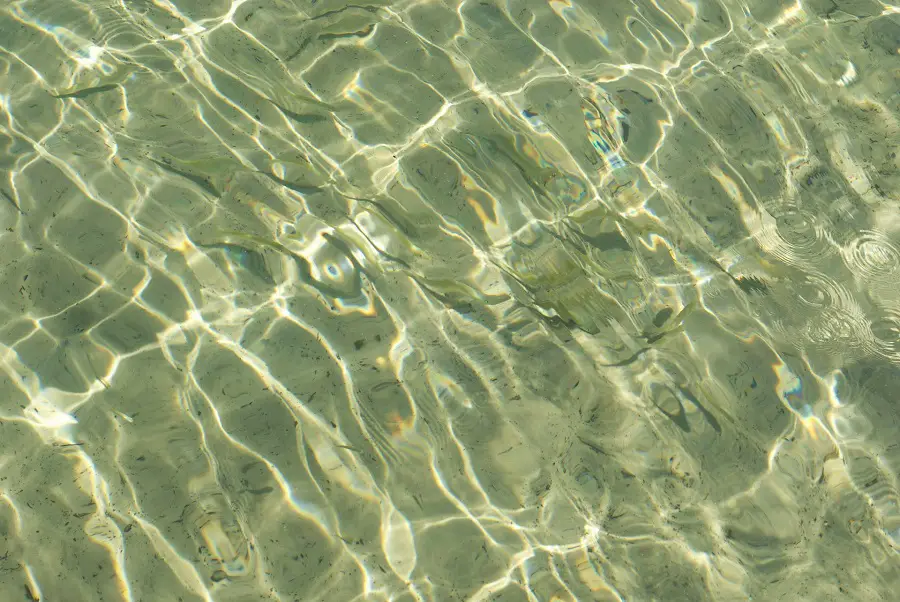If you’ve ever put a spoonful of sugar into a glass of water and stirred it up, you know how you can see the sugar in the water at first. Then it looks a little cloudy, then as you continue stirring, it disappears into the water. Well, sugar is not the only mineral that likes to get mixed in with water.
So what causes water hardness? Hardness in water occurs when water comes into contact with mineral deposits in the earth, and some of the minerals are dissolved into the water. Calcium (Ca2+), which is found readily in limestone deposits in the earth is a primary contributor to hardness in water, as well as magnesium (Mg2+) which can be commonly found in deposits of magnetite and dolomite.
What is in water that makes it hard?
Although calcium and magnesium are the biggest contributors to water hardness, there are many other deposits in the earth that can contribute to making water hard, such as aluminum, iron, and zinc.
Even though these and other minerals will add hardness to water, the amount of hardness that they will add to the overall hardness of water is minimal compared to calcium and magnesium.
Because water can channel through the earth is any direction, your water supply may have different characteristics than even your closest neighbor. Just because your neighbor has water that has 10 grains per gallon (GPG) of hardness in it, does not mean that you will have the same amount.
If your water channels through a path that has less contact with hardness contributing deposits in the earth, you could have water with much less hardness in it. It all depends on what your water source comes into contact with.
Why is some water harder than other water?
The amount of hardness that is contained in any given sample of the water will vary depending on the amount of hardness contributing deposits that it has come in contact with and its ability to dissolve and absorb the minerals that make water hard.
Water is often called the ultimate natural solvent. It has the ability to dissolve multiple substances and hold them until such a time where they are deliberately removed from it.
Water that is acidic will be able to dissolve more substances in a shorter amount of time than water that is alkaline. Therefore the fact that water is acidic can allow it to dissolve more minerals and have more hardness in it.
If carbon dioxide is introduced into water, it will create carbonic acid. Although this carbonic acid will be relatively weak, its effect will allow the water to become a more aggressive solvent and increase its ability to dissolve minerals.
This increase in dissolved minerals in the water will result in it being considered harder water.
What is temporary hardness?
Temporary hardness is the presents os high concentrations of dissolved calcium and magnesium hydrogen carbonate. These hydrogen carbonates can be removed from the water through the process of boiling the water.
Boiling the water will dissipate these hydrogen carbonates and remove them from the water. This water hardness is considered temporary because it can be removed by an increase in the temperature of the water.
What is permanent hardness?
Permanent hardness is the presence of hard minerals in the water that cannot be removed through the process of boiling the water. Permanent hardness is most often water containing calcium or magnesium sulfates.
These sulfates will not precipitate from the water due to an increase in water temperature. The calcium or magnesium sulfates in water that cause permanent hardness can be removed using a water softener and the process of ion exchange.
Is hard water ok to drink?

Actually, the two primary minerals that make water hard are essential for our health. Both calcium and magnesium are highly beneficial to our overall well being.
Many people prefer the taste of hard water because they believe that it is more flavorful than softened water and contains less salt. But this usually depends on the number of hard minerals in the water and if there are other deposits in the water.
A water softener will not only remove hard minerals like calcium and magnesium from the water but will also remove iron and manganese.
Although drinking water with iron or manganese is not considered harmful, they will give the water a metallic taste that most people find to be undesirable.
Is soft water ok to drink?
Absolutely! Just because water has had the minerals that it make it hard removed from it does not mean that it is no longer ok to drink. Some people think that softened water is not healthy to drink because the process of softening water adds lots of salt to the water.
This is not at all the case. The salt that the water softener uses is only to remove the hardness that has been collected inside of the water softeners tank.
When water flows through a water softener, the hard minerals are stripped away from the water and held inside of the softeners tank. The saltwater is only used to rinse the hardness out from the softeners tank and then it is rinsed away.
A water softener does not feed salt into the water continuously in order to soften the water.
The consumption of hard or soft water does not mean that the water is free of harmful bacteria or other harmful chemicals. If you are at all concerned with harmful contaminants in your water, you should get it tested at your local laboratory.
Just check for water testing in your area and you should be able to locate a qualified testing facility.
So, what’s so bad about having hard water?
Have you ever heard of soap scum?
No, not the bad guys on daytime television. I’m talking about that sticky ring around the bathtub after you have taken a bath in hard water. That yucky ring of soap scum is not there just because you used soap while taking a bath.
It’s there because the hard minerals in your water combine with the soap that you use to make a curd that sticks to the walls of your bathtub, and also to your skin.
This curd with hardness in it settles into the pores of your skin and can cause itchy dry skin. When you rub your hand over your skin after taking a shower with hard water and feel that rough feeling, that is not clean skin your feeling.
That’s your skin rubbing over the curd scum that is left on your skin when hard water is used. When your water is soft, you will feel a silky, smooth feeling when you run your hand over your skin.
This is the feeling of clean skin that has had all the soap properly rinsed away after bathing. It’s the oils in your skin gliding over the layer of water that is still on your body.
How does hard water make soap less effective? The hardness in water will combine with the molecules in soap, making the amount of useful soap making contact with the water less than it should be.
Soap used in hard water will not lather as well as with softened water and it tends to make a grey colored lather with little foam that contains only small bubbles.
This simply means that when you have hard water, you will have to use more soap to get the same effect as when you have soft water.
Manufacturers of soap have made synthetic soaps to combat this problem, but using a pure soap with no added ingredients will be most effective when used with hard water.
Additives in soaps (like scented soaps and colors in soaps) mean that there is less actual soap in the soap. The more stuff that is in the mix of soap and water, the less effective it will be.
Can hard water build-up inside your home’s plumbing?

Water hardness can build-up inside your pipes and hot water heater. If you have hard water running through your home’s plumbing, the hardness can collect in any tiny scratch or dimple that may be in your pipes.
A simple elbow in the plumbing will have a small ridge where the two pieces of pipe come together. This is a perfect spot for hardness to attach itself to and begin the build-up of hardness.
As other hardness passes by this lodged hardness, they can cling to it, and make the build-up larger. Over time this can lead up to a significant blockage that can cause loss of water pressure and costly replacement of clogged up plumbing.
This hardness in your water can build-up inside your hot water heater and cause a drop in efficiency that can lead to not having any hot water at all, followed by an expensive new hot water heater bill.
What if I already have hardness build-up in my pipes?
Hardness build-up in your home’s plumbing can be cleared by running a mild acid through the pipes to dissolve away the build-up. The problem with doing this is that the acid will attack any non-affected areas of your plumbing as well.
Most of the time, hardness deposits form in certain areas of your plumbing. Common areas include sharp turns in your plumbing like 90 degree turns in the pipes and also in horizontal pipes more than in vertical.
This means that the areas with less or even no build-up will be attacked by the acid and weaken the walls of the pipe, this will in time lead to pinhole leaks or even pipes bursting.
Even if you were to only use a small amount of acid to clear a small section of piping, you can only do this a few times before you may experience leaks due to the plumbing being weakened by the acid.
The best solution is to install a water softener. Over time, running softened water through your plumbing will gradually flake off the hardness build-up that has accumulated in your plumbing.
This is a safe and effective way to clear your plumbing and keep it clear without having any harmful effects on your pipes or your home’s fixtures.
Can water hardness change?
Absolutely! Changes in rainfall, heavy or light periods of rainfall, any type of construction going on nearby or even miles away can change the route of the water you use.
Anytime a water source comes into contact with a new series of minerals, the amount of hardness that it will dissolve will change.
Even if just a few new homes are built on your street, the characteristics of your water may change because the water may now be finding new channels in the ground and the water demand from your water source has increased.
The volume of water be used from a source of water may change the rate at which it passes over deposits in the earth, this can mean that there is less time for the water to dissolve minerals that will contribute to the waters’ overall hardness.
So this change in your water supply can sometimes actually make your water situation better. Sometimes a change in your water source can make things worse.
If there is more demand for your water supply, it may not be in contact long enough with minerals that will help to make it better. This can sometimes result in the water becoming more acidic over time.
Minerals like calcite will neutralize the acid in the water, but if the water does not get enough exposure to these minerals, the water will remain acidic. Acidic water can cause corrosion of a home’s plumbing and fixtures and may result in leaky pipes and possible rupturing of pipes.
Fortunately, this problem can be corrected in the home by treating the water with an acid-neutralizing water treatment system. This system contains calcite that will neutralize the acid in the water, making it safer for the home’s plumbing and fixtures.
Will hard water etch glass?

Hard water itself will not etch glass, but the effects of the acid surrounding the hard minerals that are left behind when the water dries can change the composition of the glass, giving it an etched effect.
But the glass is usually not actually etched as it is a relief on the glass. Now before you go and order a new shower door, there are ways to clean hardness build-up from glass shower doors, and even ways to make a shower door that has been etched look like new.
If you have a hardness stained glass shower door, I recommend a few ways to clean it, and if they don’t work there is a way to refinish it.
First of all, there are several hard water cleaning solutions available on the market, and I’m sure that plenty of them do a fine job at removing light hard water stains.
But what if your hard water stain is a real tough one. If your shower door just won’t come clean with over the counter cleaners that you have picked up in the supermarket, here are some bolder solutions to the problem.
First, try this homemade and safe soap scum cleaner that is often called Magic Stuff. It has been used for years with great success for cleaning soap scum and hard water stains.
It is just a solution of Dawn dishwashing liquid and white vinegar that you spray on your shower door, let it sit for several hours, and then rinse away. If cleaning your shower door doesn’t seem to cut it, some people have tried scraping it off with a razor blade.
This usually works pretty well, but it is a lot of work, and the end result is usually only ok at best.
If you really want your shower door to look like new, I find that super fine, car polishing grade sandpaper works great. Now don’t run out to the hardware store and grab some sandpaper and go to town on your glass door.
This is very special sandpaper that is used for very fine polishing on a wet surface. If you are going to try polishing your glass shower door, be sure to read the directions and try it on just a small spot first, so you can see the potential results.
How can you remove hardness from water?

Although there are several ways to remove hardness from water including reverse osmosis, distillation and even the freezing of the water, the most common and economical methods are chemical precipitation and ion exchange.
The most common and widely used method is the process of ion exchange, which removes hardness by running the water through a bedding of water softening resin that attracts the hardness out of the water, and then the hardness is later removed by the exchanging of the hardness ions with sodium ions.
Water softening resin is small beads that have a charge to them that makes hardness ions cling to them. Once the resins beads are coated with hardness ions, they need to be cleaned off so they may remove more hardness from the water.
In order to remove the hardness ions from the resin and re-charge it, a solution of brine (saltwater) is flushed over the resin which allows the hardness to fall off the resin and get rinsed away.
The brine solution does this because the softening resin has a stronger attraction to the sodium ions than it does to the hardness ions. After the hardness ions have been flushed away, a strong rinsing using clean water then removes the excess sodium from the resin, and the resin bed is then ready to remove more hardness.
Related Questions:
Is water hardness the same as TDS? Water hardness and TDS (Total Dissolved Solids) both refer to substances that can be in the water, although they are not one and the same. But there is a connection between waters hardness and waters TDS.
A waters hardness is primarily composed of calcium and magnesium which are considered to be hard minerals that cannot be filtered out by a mesh type filter.
These minerals are dissolved solids in the water, so there presents will be included in a TDS reading. Where other organics and inorganics that are present in water, maybe a part of the total dissolved solids, but not considered to be a contributor to the water’s hardness.
What does water hardness mean? Water hardness is a term describing water that has a high level of calcium and magnesium in it due to the water passing over deposits of limestone and chalk in the earth.
The term “hard water” is believed to have been originated to describe water that was hard to clean because of its hindering of soaps effectiveness.
Although I have not found any proof that this is true, it sure sounds like a reasonable explanation for the term because water with minerals like calcium and magnesium in it certainly makes it hard to clean with.
Why is salt needed to remove hardness from water? There is a lot of hype going around about “salt-free water softeners”. There is only one problem with salt-free water softeners, and that is that there is no such thing as a salt-free water softener.
A so-called “salt-free water softener” is actually a water conditioner. A water conditioner changes the form of the hard minerals in the water so they are less likely to adhere to surfaces.
A salt-free water conditioner may sound good at first, but most people that I talk to that have purchased one, feel that it was a complete waste of money.
Test your water to determine the hardness, iron and other properties of it, then learn what type of systems will work for your particular needs. A water softener softens water, if you have other issues, you may need other systems to address them.
The water that is produced by a water conditioner will still feel rough on your skin and will not work better with soaps or detergents.

